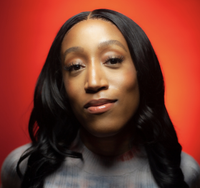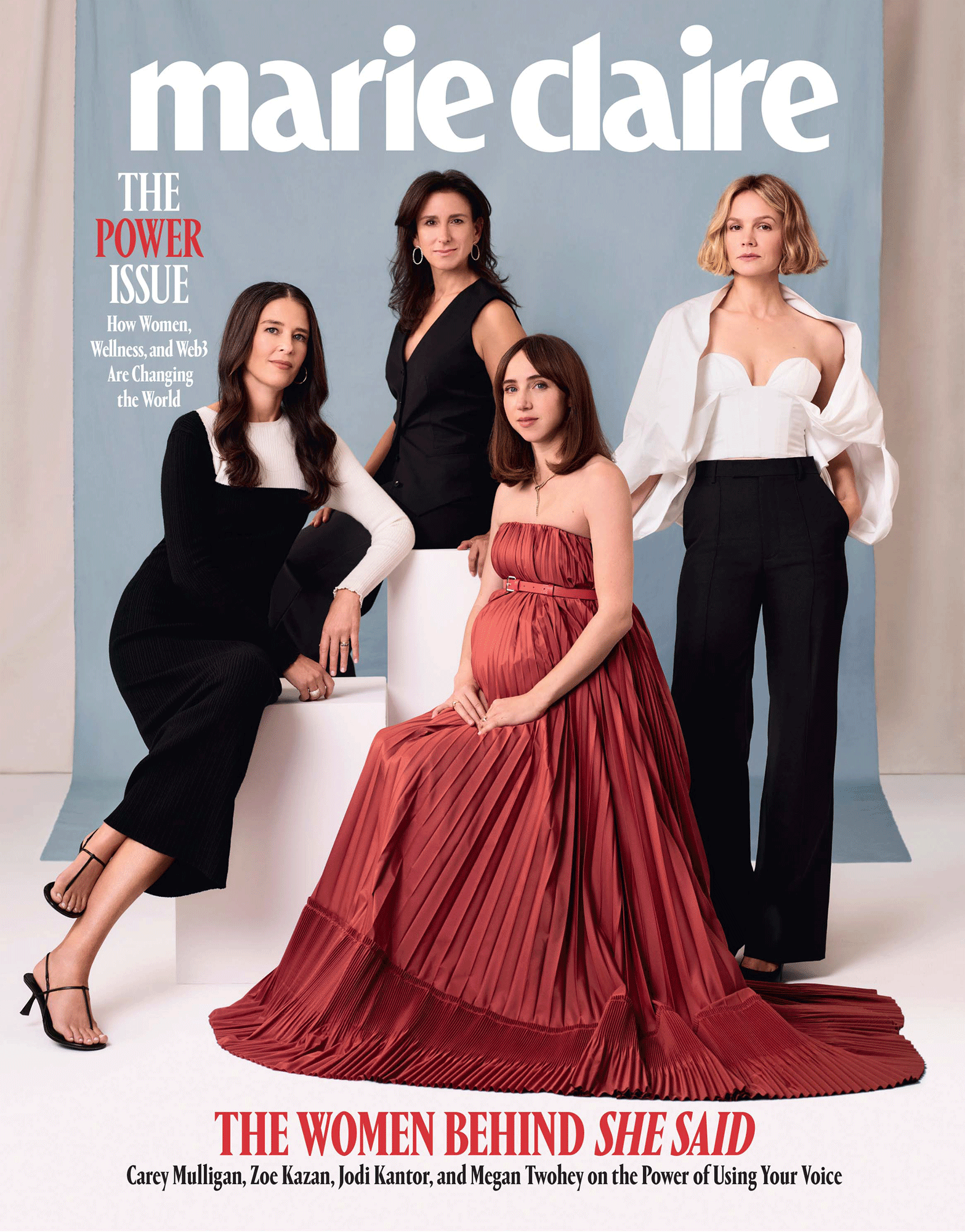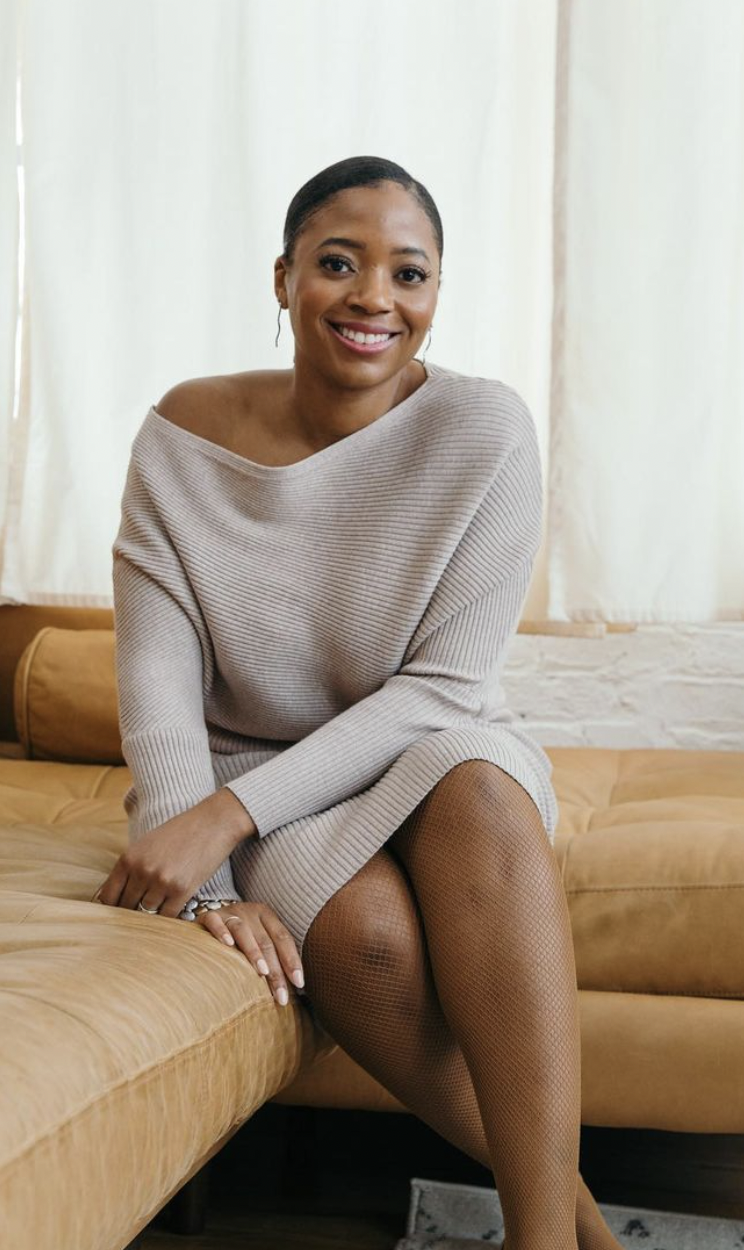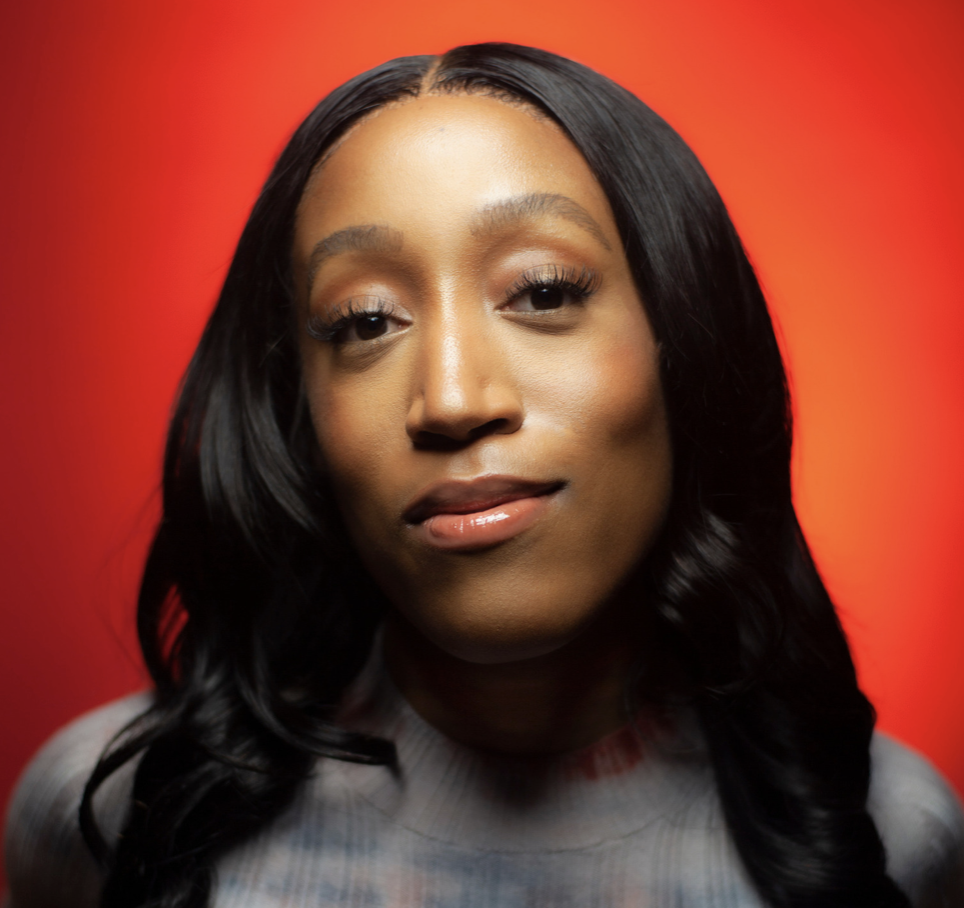Hustle Culture Harms Women of Color the Most
Systemic issues in the workplace mean that an ethos of constant grind causes disproportionate harm to underrepresented professionals.


With her startup Nude Barre, an inclusive hosiery and intimate–apparel company, running out of cash flow, founder Erin Carpenter had just returned home and was about to jump into her third and final meeting of the day. She was in the bathroom when she noticed spotting in her underwear. Oh no, she thought, I hope this doesn’t mean what I think it means…
Carpenter, who was one month pregnant, feared she was having a miscarriage. But the grit she’d exercised for the past decade outweighed that fear, distorting the thought of rescheduling the meeting into proof of her inadequacy. If she couldn’t clear this obstacle, how would she ever hurdle the barriers keeping her and other Black women founders from receiving more resources? (According to a digitalundivided study, Black and Latinx women founders received just 0.43 percent of all venture capital in 2020.)

“I don’t think that some of our counterparts are viewing their work and their life in the same way,” Carpenter tells Marie Claire. “Whereas a Black woman has to hustle harder and question, Could I have done more? Could I take a step further?”
So, feeling the obligation of being one of the few venture-funded Black women founders, Carpenter took that step. She logged into Zoom, and between fielding questions about sales targets and detailing growth projections, she miscarried.
Sometimes Carpenter looks back on that day and regrets not having taken time for herself. But in the moment, she felt there was no other way. “As a Black woman [founder], who is given less funding, who is recognized a little less—all of the things it’s less and less—you’re constantly wondering, Am I doing enough?”
The rise of remote work, excessive burnout, and existential crises brought on by the pandemic and Black Lives Matter and Stop Asian Hate movements over the past two years have prompted professionals to reevaluate work, life, and what they want out of both.
Cue: The Great Resignation, an exodus of more than 40 million employees out of their jobs amid a historic labor shortage. The trend is set to continue, particularly among women. In April, Deloitte published a survey of 5,000 women across 10 countries and found that more than half wanted to leave their employer in the next two years, citing burnout as the top driving factor. More recently, the concept of quiet quitting—or strictly doing the work you’re paid to do within business hours and setting firm boundaries—has gone viral, prompting arguments on the drawbacks and merits of going above and beyond one’s job duties. Of course, this on-the-clock coasting is more a risk than a luxury for workers of underrepresented backgrounds who already face disproportionately high rates of unemployment, workplace discrimination, and unconscious racial bias.
Get exclusive access to fashion and beauty trends, hot-off-the-press celebrity news, and more.

Since the coronavirus outbreak began in the U.S., Hispanic and Black Americans were more likely to have been laid off than white employees, according to a Washington Post-Ipsos poll. At the precarious intersection of this global trend and mindset shift are women of color, who are more likely to struggle with work-from-home and childcare arrangements.
At the same time, a record number of women of color started new businesses in 2021, contributing to the 6.4 million jobs created last year. Further, nearly half of startups were formed by women, up from 28 percent in 2019, and three times more Black women became entrepreneurs. Through reclaiming their mental and emotional health and pouring their hard-earned lessons back into their communities, Black, Hispanic, Asian, and Indigenous women are reimagining new work cultures rooted in wellness, joy, and freedom.
But entrepreneurship isn’t a cure-all. Since day one of Nude Barre, Carpenter pitched non-stop, constantly fielding questions about her work ethic and drive. Her passion to offer undergarments for diverse body types and complexions in a category plagued by colorism fueled her through each “no,” though it didn’t soften the rejection. Ten years would pass before she scored her first investors, tennis legend (and early Nude Barre customer) Serena Williams and Bumble founder Whitney Wolfe Herd. The two held a pitch competition for women-of-color founders and Carpenter won.
By 2020, having raised $1.4 million in seed funding and hired her first employees, Carpenter felt she’d “gotten everything together.” But she found herself facing more pressure than ever. Regular meetings with her venture capitalists and board of directors meant constantly answering questions about her leadership. Would I be being asked these things or pushed in this way if I were a different gender or complexion? Carpenter sometimes wondered. “Systemic racism was created to make people of color question themselves,” Minda Harts, a workplace and equity consultant, writes in her book Right Within: How to Heal from Racial Trauma in the Workplace. This often leads to burnout and feelings of inadequacy that affect mental health. “Often we are experiencing our racialized trauma in isolation and struggling to make sense of it all,” explains Harts. The first step to healing is acknowledging the harm. Yet many Black women avoid calling out microaggressions and blatant discrimination in fear of being labeled angry. Harts encourages women to reshape these confrontations as “courageous conversations” and allow themselves to say,
“Maybe they didn’t mean harm…but now we need to let them know that this wasn’t okay.”

For entrepreneur Erin Carpenter, the pressure to prove herself meant that she didn't prioritize her health.
It’s one thing to steer your own ship in the historically biased waters of Silicon Valley, but it’s quite another to work in a company accused of a toxic culture. Madison Utendahl’s time at the Museum of Ice Cream in her 20s was fraught with stress. In 2016, she joined the interactive retail company as the head of content and social, a misleading title given that the entire content and social team was one person—Utendahl.
But as a young Black millennial steeped in #Girlboss culture, she prioritized her career above all else and leaned in, à la Sheryl Sandberg. That lifestyle permeated her workplace, a philosophy she linked to her colleagues’ banking backgrounds.
“People would say to me, ‘You’re killing it. You’re doing an amazing job,’” she recalls. Utendahl would soon develop constant vomiting and debilitating cramps, which she attributed to workplace stress. “I pushed it aside for a really long time,” she says. “I chose not to pay attention.”
She was eventually diagnosed with pancreatitis. One evening at a swanky work event, someone praised Utendahl yet again. This time, her killer façade crumbled. “Even though I was at this incredible place in my career, I remember just crying,” she says. “I realized if I wasn’t able to enjoy myself in spaces like that, where there was fun, and music, and drinking, and dancing, there was something wrong.”
Utendahl left the company. Shortly after, her pancreatitis vanished. “[Quitting] was the best thing I’ve ever done for myself,” Utendahl says. “The freedom that we give ourselves as Black women when we decide to relieve ourselves—if we can—from those positions means physical and mental freedom.” Still, she sees how some women might struggle to leave when they finally experience the momentum they’ve worked so hard for.
Behavioral scientist Carey Yazeed, Ph.D., often meets women who feel this way. In writing her book Shut’Em Down: Black Women, Racism, and Corporate America, Dr. Yazeed has interviewed hundreds of women of color who have endured significant amounts of workplace trauma without realizing its effects. “Part of what we see fueling hustle culture is the underlying abuse that takes place in work settings, the manipulation, the gaslighting,” she says. “So you’re chasing after this dangling carrot that you’re never going to obtain.” She points to trauma bonding as a common consequence of hustle culture. “We usually associate that with someone who’s been in an abusive romantic relationship,” she says. “But we can also develop them with our workplace…and with our coworkers.”
Examples include staying at a job out of fear and accepting mistreatment in hopes of a promised raise. Institutional issues certainly perpetuate the impact of hustle culture on women of color, but Utendahl insists that combating internal issues with a “mental shift” is just as critical. She praises Gen Z for championing quiet quitting and challenging the workplace toxicity ingrained by previous generations.
Self-work is the key, she believes. Make time to really think about what you want and what will make you happy. “It’s hard, but so worth it,” says Utendahl. Now, she is the founder of Utendahl Creative, an all-women branding and design agency. Since launching in 2019, she has introduced policies to protect employees from burnout, including early office closings on Friday, five weeks of mandatory rest annually, and corporate coaching.
“I just want Black women to know that they are worthy of living lives that are not rooted in hustle and grind,” says Utendahl. “There’s another way to live.”
After her miscarriage, Carpenter didn’t know how a break would help her or her company. A pause just seemed more stressful. Professional coaches like Roshida Dowe are available for such dilemmas. Dowe guides women looking to take career breaks—including sabbaticals and early retirement—move abroad, and live life on their terms. Black women make up the majority of her clientele, many of whom have told her that they feel like they’re running a race they can never win. “The American dream is a constantly moving target,” she says. “Until you decide you have enough, it’ll never be enough. There’s always another promotion. There’s always more money to be making.”
Dowe empathizes with each client because she’s been in their shoes. In 2018, the Silicon Valley company she worked for went out of business and laid her off with six months’ notice and no severance. With the “fuck you” money she had saved over the years, the then-39-year-old traveled the world, visiting 44 cities in 23 countries. Her sabbatical revealed an alternative lifestyle that didn’t revolve around a spirit-breaking job and inspired her to become a career-break coach. She’s since built an online community and cofounded an annual summit on the topic. “I’m meeting Black women who realize they are more than what they produce, they’re more than what their labor creates,” says Dowe.
Nowadays, Carpenter better prioritizes her personal time and energy, structuring routines and ensuring quality time with her children. She’s also choosing activities that feel good, like moving her body at least 15 minutes every day. Sharing her story of working through a miscarriage in the media and with mentees has become part of her mission. “Maybe it’s motivation for another female founder,” says Carpenter: “It’s okay to be vulnerable enough to do what I didn’t do, which was to step back and say, ‘I need a moment.’”
Your Career Break Guide
Step 1
Commit to the decision that you are, indeed, going to take a break, says Roshida Dowe. Then review your personal and professional calendar. Do you have a lease to consider? Are you due a bonus or raise in a specific month? Use this info to set a start date.
Step 2
Determine the length of your break and where it will take place, be it in another hemisphere or right at home.
Step 3
Determine your budget. CFPs suggest estimating your monthly living expenses and multiplying that by the number of months of your planned break.
Step 4
Create boundaries. For instance, if you want more rest during your break, be careful about RSVPing yes to every event and invitation.
This story appears in Marie Claire's 2022 Power Issue, on newsstands November 22.

Patrice Peck is a multi-hyphenate creative with a 10-plus year background in reporting, cultural criticism, on-camera hosting, and multimedia production. Her cross-platform work centers on amplifying underreported stories at the intersection of race, culture, and identity and can be found at The New York Times, The Los Angeles Times, The Atlantic, MSNBC, Vogue, Elle, Wired, Businessweek, and more.